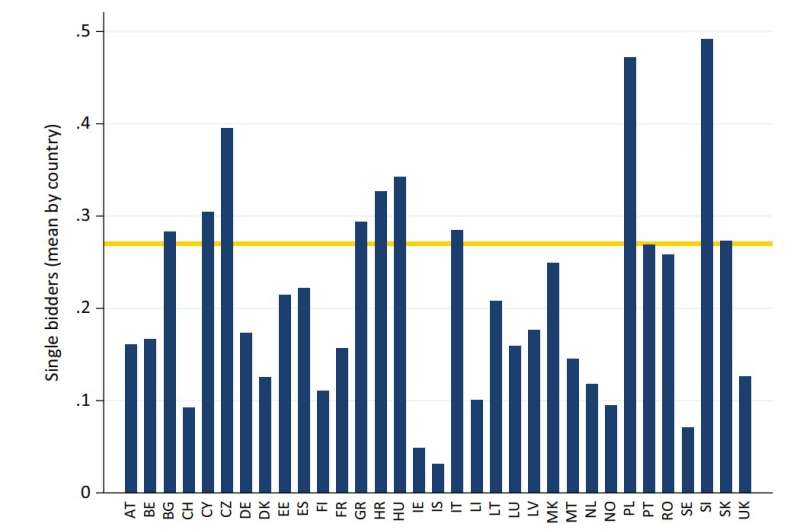EU guidelines for procurement during the COVID-19 crisis may lead to increased corruption

Shouldn't common provisions for procurement within the EU lead to increased central control and better coordination? Yes, but the guidelines introduced during the COVID-19 crisis were at the same time so flexible that they can also result in increased corruption and reduced legitimacy. This is shown by Brigitte Pircher, associate professor of political science, in a new research article.
When the COVID-19 pandemic swept the world, the EU was forced to react quickly. Member countries needed to purchase supplies such as vaccine doses and face masks in record time. Therefore, the European Commission introduced new guidelines for public procurement.
"The guidelines made it possible to efficiently and quickly purchase material all over Europe and globally. This also gave increased flexibility to the member states when purchasing medical supplies. Examples of this are direct contracting, short time frames and innovative solutions to get hold of supplies," says Pircher who is a researcher and associate professor of political science at Linnaeus University.
Negative trends
Pircher believes that the development gave the EU, and especially the European Commission, increased power. This is because the regulations lay out rights and obligations for joint procurement in the case of COVID-19 vaccination. At the same time, the guidelines may also have negative consequences.
"Data from the EU Commission's tender database that I have analyzed show that the risk of protectionism and political corruption may increase. Especially in Eastern and Southern Europe, a trend of single bidders in procurement has increased strongly in the last 15 years, as has direct contracting without any calls for bids. Both are indicators of corruption."
Potential hazards
At the same time, these levels have remained low in Sweden and other EU countries. Pircher's research thus shows an increased difference between countries in how to implement and apply the procurement provisions. She sees great potential dangers in this.
"One example may be that some member states strive to promote environmental criteria proposed by the EU. At the same time, other countries may use the criteria to favor certain companies and businesses 'through the backdoor.' This hidden protectionism has the potential to harm the European single market as a whole. This would mean that the EU's aims are subverted in practice—and thereby also gradually the legitimacy of the Union."
The article is published in Politics and Governance.
More information: Brigitte Pircher, EU Public Procurement Policy During COVID-19: A Turning Point for Legitimate EU Governance?, Politics and Governance (2022). DOI: 10.17645/pag.v10i3.5295
Provided by Linnaeus University





















